The number of coronavirus cases in Latin America on Friday exceeded 11,000 – and that’s only according to official estimates.
The region’s richest, yet most internationally and globally oriented country, Brazil, was the epicenter of the pandemic with nearly 4256 cases and 77 deaths. It was there, in São Paulo, that the first confirmed case of Covid-19 was diagnosed.
Many now fear that Latin America might expect a scenario like we are seeing in Italy.
Regional leaders have reacted in different ways. For instance, Salvadoran President Nayib Bukele, even before the first case was discovered, imposed flight bans and quarantine. The most cynical reaction came from the presidents of Brazil and Mexico – Jair Bolsonaro and Andrés Manuel López Obrador – who reacted late, calling it “hysteria” and advising the population to enjoy the moment and read Love in the Time of Cholera. The most extraordinary case was the behavior of Nicaraguan head Daniel Ortega, who, on March 14, held a mass parade of “Love in the Time of Coronavirus”
Brazil: a dangerous carnival
In Brazil, perspectives on the pandemic were divided – proponents of prioritizing economic development, including the country’s leader, Bolsonaro, downplayed the danger, while state governors took the initiative and introduced quarantines. The president’s conflict with local leaders reached a point where Bolsonaro accused the latter of exaggerating the number of infected.
The president called two prominent governors of São Paulo and Rio de Janeiro “irresponsible” for imposing quarantines and “creating a climate of terror.”
Brazil had its first coronavirus case diagnosed just after Carnival. A person who had visited Italy returned with symptoms and immediately went to the Albert Einstein Hospital, a world-class facility in the largest city in the southern hemisphere of São Paulo.
Now that the epidemic has spread widely, Bolsonaro is urgently consulting not only with the US president, but also the Chinese side (promising mutual cooperation during the crisis).
Many criticized the president’s irresponsibility after he came out of his self-isolation to talk with thousands of supporters who came to rally – he spoke with many in person. The leader’s comment that the coronavirus was just hysteria resonated and inspired outrage.

He called the epidemic a “fantasy” and a “small flu” despite its infecting over 500,000 people worldwide and killing tens of thousands.
Economy Minister Paulo Gedes said that the lifting of restrictions would burden the health system, but social restrictions would strangle the economy.
In the opposite camp, there were supporters of emergency quarantine such as Vice-President Hamilton Mourão. The President of the Chamber of Deputies Rodrigo Maia also stressed that the government cannot stop caring for people because they are losing money in the stock market.
The speed of transmission is a concern for medical professionals, who are afraid that the health care system will not cope with it.
The Government has now introduced emergency measures. Each worker in the informal sector will receive 200 reals a month (£33; $40). On March 25, 26 governors signed a letter to the federal Government asking for universal basic income for the most economically vulnerable. They also requested a 12-month suspension of public debt to major financial institutions, both domestic and international.
On the same day, the Ministry of Health announced the allocation of approximately $119 million to the states. Those funds were in addition to the $79.2 million previously disbursed in March.
The social aspect is also important: the vast majority of coronavirus cases in Latin America come from Europe, mainly Italy. Thus, the first to be infected was the well-to-do population, who then began to spread the infection to the general population. The difference is that travelers can usually afford to pay for treatment in private hospitals – if a pandemic is triggered, ordinary citizens will find themselves with nothing, and nowhere to turn. There will be a basic lack of beds in hospitals.
Brazil’s health minister, contrasting the number of beds with the rapid spread of the disease, said on March 20: “Clearly, by the end of April, our health system will collapse.”
“It’s community transmission that reveals the deep inequalities in the region – poorer people serving wealthier ones. Cooks, housekeepers and nannies will have to rely on a public health service that is already over-subscribed – and that’s without the onslaught of coronavirus,” writes BBC.
Meanwhile, the Brazilian currency is falling every day. Families do not have enough to buy food, not to mention cover rent and other bills.
“I’m sorry, some people will die, they will die, that’s life,” Bolsonaro said in a television interview. “You can’t stop a car factory because of traffic deaths.”
“We need to look at what is happening there, this cannot be a numbers game to favor political interests,” Bolsonaro said.
Not surprisingly, with this attitude, the country became the leader of the Covid-19 pandemic in the region.
Chile: Supply chains are breaking down
On March 18, Piñera announced a “catastrophic situation” for 90 days nationwide as of March 19. A curfew was imposed on March 22 and the Government declared a quarantine on March 25.
The first case in Chile, discovered on March 3, was brought from Asia, after a trip by a Chilean doctor.
On March 24, the head of state announced new labor legislation to regulate and facilitate remote work and promised to finance the previously announced emergency package to protect jobs during the quarantine.
The President announced an $11.7 billion economic assistance plan, using a special constitutional provision to release funds without Congressional approval. Piñera said that the package would account for approximately 4.7% of annual GDP.
Chile, as one of the largest economies in the region, was extremely vulnerable because of its broad supply chain.
Ecuador
February 29 saw the first case in the country, and on March 13 the death of an elderly woman was recorded, the first victim of the virus. She came from Spain and was most likely the first virus carrier in the country. Measures were also introduced too late, which led to the rapid spread of the infection.
Only on March 15 were foreigners were banned from entering the country, and on March 16, President Lenin Moreno announced that the country would enter an exceptional position and introduced curfews with restrictions on transport.
The authorities ordered utilities not to be disconnected for non-payment, provided greater access to the Internet and mobile communications, postponed mandatory insurance payments, and postponed taxes for tourism and export sectors.
Argentina
Argentina was infected in much the same way: after a citizen returned from a trip to Italy.
On March 7, Argentina became the first country in Latin America to announce a death from coronavirus. The government did not act too quickly, and only on March 12 was it decided to cancel the most dangerous flights. On March 19, the government announced a mandatory quarantine from March 20 to 31, instructing citizens to stay home and only go to shops and pharmacies when needed.
On March 18, Argentine President Alberto Fernandez promised to build eight hospitals to fight Covid-19. Additional measures include a flexible system of working from a distance, the extension of holidays for the elderly, minimizing a number of taxes, as well as tightening state control over prices.
Mexico
The first confirmed case in Mexico was on February 28, the first person to die had complications from diabetes.
Like the head of Brazil, López Obrador (AMLO) carelessly treated the situation at first. During the week of March 16, he said that the restrictive containment measures introduced too early would have a negative impact on the poor in the country. On March 22, when the pandemic had reached alarming proportions around the world, he urged people to continue taking their families out for lunch.
He urged people to relax and read García Márquez’ famous novel “Love in the Time of Cholera”…
It was not until March 20 that the governments of the United States and Mexico announced that they would begin restricting travel across their common border from March 22 – and added that trade would continue.
The late measures are also hardly radical: they introduced a “safe distance” rule, suspending events involving more than 5,000 people. Only some regions have introduced a full quarantine.
Obrador follows the Trump-Bolsonaro line of reasoning, and among the main measures he mentioned granting low-interest loans for small businesses… however, he told companies not to wait for tax breaks.
Among the social measures, pensioners will receive an advance on their next pension deposit.
Colombia
On March 6, Colombia confirmed the first case in the country, imported from Milan, and the first death was recorded on the 21: a taxi driver who contracted the disease from Italian tourists.
Only on March 17, the head of Colombia Ivan Duque declared a state of emergency and announced that people aged 70 years and over must stay in their homes and isolate themselves until May. Colombia’s departments then declared a night-time curfew. From March 24, a national quarantine was imposed until April 13. Entry of international commercial flights was suspended for 30 days from March 23.
Among the measures announced by Dooké were abolition of import taxes on medical goods and technology, accelerated tax refunds and the restoration of water services. The Government also promised credit privileges for small and medium-sized enterprises, special loans for certain sectors, payments to low-income families, as well as food and water distribution.
Cuba
There are at least 80 confirmed cases in Cuba itself. The first cases discovered on March 11 were brought by Italian tourists.
On March 23, Cuban Prime Minister Manuel Marrero announced the closure of schools and universities until April 20 (probably with an extension). Travel has been suspended, tourism is closed. Cubans returning home are under strict quarantine for 2 weeks.
The Cuban Government has commissioned the country’s textile industry to produce fabric masks, while encouraging the population to make washable masks at home. The Government, although not rich, will allocate funds to combat the shortage of medicines and medical equipment in the country should the virus begin to spread.
What is perhaps most interesting, however, is that Cuba, which continues to be economically crushed by sanctions and demonization, has become one of the few countries (with China and Russia) that actively helped others affected during the pandemic. On March 21, the Cuban government announced that it would send a team of 52 doctors to Italy to support efforts to contain the virus there. In doing so, Cuba is assisting the passengers of the British ship MS Braemar off its coast with medicines and coordination.
Venezuela
Venezuelan President Maduro, despite facing extreme pressure from external enemies, warned in a speech that other leaders had not taken the problem seriously enough from the beginning.
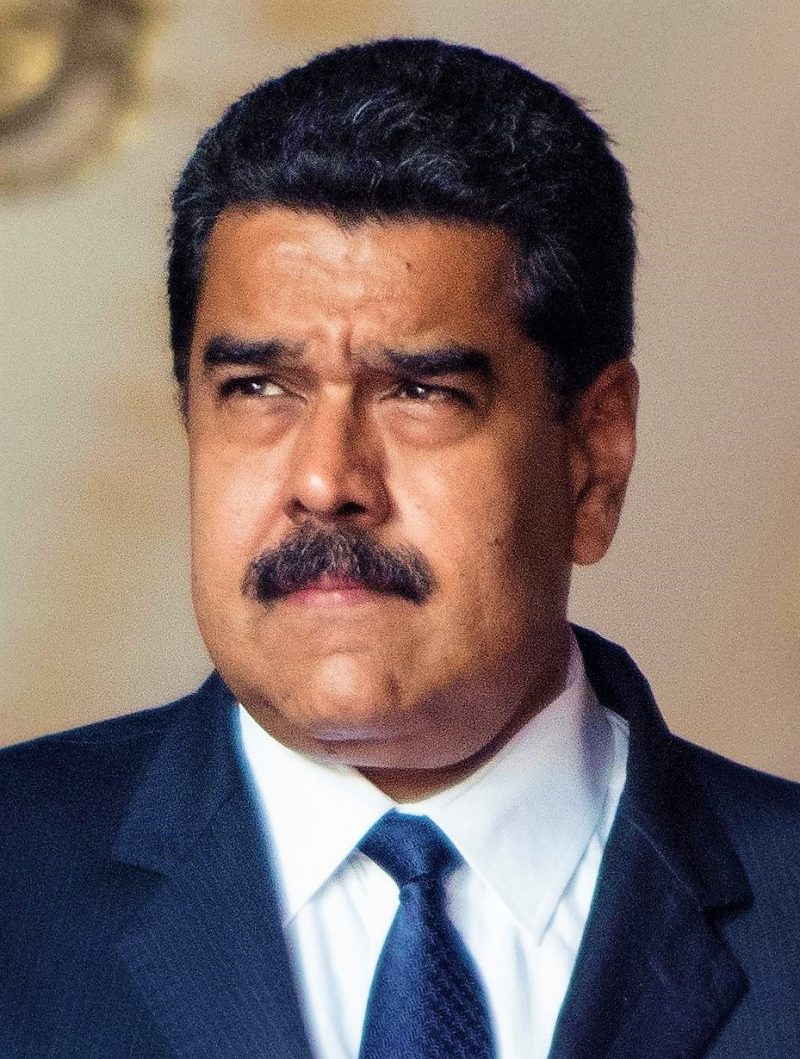
Wikimedia Commons
The first cases in Venezuela were recorded on March 13, imported from Spain. On March 16, Maduro extended the social quarantine, with the closure of businesses and home quarantine of residents. Maduro announced that layoffs would not be allowed until December 31, while all payments for rent of residential and commercial premises will be suspended for six months. Maduro promised to help small and medium-sized businesses pay their salaries. He also noted that interest payments on loans will be suspended for six months.
Venezuela, like Iran, has been subjected to pressure from the US at the most difficult time possible. While Cuba and others were helping other countries, the Americans (the current leaders in the coronavirus infection) decided to seize the moment to pressure the “Maduro regime”. The US accused Maduro of drug smuggling, offering $15 million for information and assistance in his arrest.
Instead of aligning himself with his fellow citizens and working together to save him from the pandemic, opposition activist Juan Guaydo reinvigorated his campaign against Maduro.
A crisis is always an excellent way to see the true faces of “democracy activists…”
Other countries
The virus arrived in Peru from a European tourist, confirmed March 6. Since March 25, a quarantine has been imposed, and at least 8,000 people were arrested for violating curfews and restriction of movement measures. Since Peru is also heavily dependent on the outside world, China is Peru’s main trading partner, with 30% of its exports destined for the Asian country, the forecasts are serious: Goldman Sachs says Peru, along with Chile, is considered the most vulnerable economy in Latin America because of the coronavirus.
In Panama, a quarantine was imposed on March 24 and the country’s armed forces closed all unofficial entry points across Nicaragua’s southern border with Costa Rica on March 25. The infestation originally came from Spain. Purchases from shops or pharmacies were made only on a strict schedule and with documents. Given that 6% of world trade goes through the canal, financial analysts warn that Panama will also feel the pain of the crisis acutely.
Bolivia got the coronavirus from Italy and was quarantined on March 22. Only one family member is allowed to go shopping.
In Uruguay, the media reported last week that half the cases of coronavirus in the country can be traced back to one guest at a glamorous party that has just returned from Spain.
The first confirmed case in the Dominican Republic was recorded on March 1 – again, an Italian tourist. Quarantine was imposed on March 20.
On March 6, Costa Rica became the first Central American country to be infected by a tourist from the United States. Alvarado signed a tax exemption law that effectively imposes a moratorium on four types of taxes from April to June. https://www.as-coa.org/articles/where-coronavirus-latin-america
Given the importance of tourism to Costa Rica’s economy, the pandemic will have significant consequences
Coronavirus was also brought to El Salvador and Guatemala from Italy, and to Honduras from Spain and Switzerland.
El Salvador: “World War III has already begun.”
Let’s take a closer look at the example of El Salvador. El Salvador is the country that acted as quickly and strictly as possible after the WHO declared covid-19 a pandemic.
El Salvador declared a 21-day national quarantine in a message on national television by President Nayib Bukele on Wednesday, March 11. The first case was found only on March 18!
Algunos aún no se han dado cuenta, pero ya inició la Tercera Guerra Mundial.
Some people might not have realized that World War III has already begun. pic.twitter.com/yK6RCSoPv4
— Nayib Bukele (@nayibbukele) March 23, 2020
“Some people might not have realized that World War III has already begun,” Bukele said.
“We have decided to decree a national quarantine for the entire national territory,” he continued, adding that it is necessary to look at countries in Europe that issued a national quarantine only when they recorded thousands of deaths, such as Italy.
As a result of extremely rapid measures, El Salvador now has about 19 cases of infection, unlike many other disadvantaged neighbours.
The country, which was one of the last to report a covid-19 presence in Latin America, took the following measures right off the bat: payment for basic services such as water, electricity and even the Internet would be suspended for three months for the entire population. Bukele also announced that more than 1.5 million people who consume less than 250 kilowatts of electricity per month will receive a bonus of $300.
“There are some entrepreneurs who are worried that they are going to be 10, 15% or 20% less wealthy. You have money to live 10 or 20 lives. You are not going to live long enough to finish it. You better think about living,” Bukele said in his speech.
“When you need a hospital bed for us to take care of you, and you can’t breathe, believe me the least you’re going to care about is your bank account, what you’re going to want is a mechanical ventilator. Let’s all sacrifice a little bit,” he added.
Bukele struck fear into potential corruption by officials saying: “Whoever touches a penny, I’ll put him in prison myself.”
Is there any good news for Latin America?
Among the positive factors for the region, as is the case in Africa, are warm temperatures and a young population (27-30 years on average).
Another deterrent is that in Latin America, despite the presence of giant cities like Mexico City and Sao Paulo, the concentration of people is lower than in Europe and the virus is not spreading as fast.
However, in a matter of weeks, the crisis has also taken on an incredible scale.
The long-term effects of the crisis are grim, and the social, political and economic consequences can be dramatic, predicts the Brookings Institution:
“Overall, most governments were behind the curve, waiting until cases had appeared, then swiftly taking sweeping measures. The region is now probably two weeks ahead of the stage when Italy and the United States began to seriously address the crisis.”
“All these policies may be too little too late for countries whose health systems are relatively underfunded. The per capita expenditure in Latin America and the Caribbean on health each year is $949, a little over one-quarter that of Italy and OECD countries as a whole.”
The collapse of globalism
Latin America has a lot of natural resources, but it is too dependent on the outside world – this helps explain both the speed with which the virus is spreading and the current problems of a globalized, networked world.
Beyond the health risks, there will be economic consequences. China is either the first or second largest trading partner for many Latin American countries. Before the epidemic, the IMF predicted that GDP growth in the region would be 1.6% in 2020. There will clearly be no growth, given the parallel oil collapse.
Globalist programs that are not in the interests of the countries themselves are coming to an end. Countries are reorienting towards what is really important – domestic self-sufficiency and social responsibility.
Latin America can only become a strong player in a multipolar world if it finds the strength to give up globalism in one form or another (whether it is a priority of Trump-style capitalism, or the anti-human globalism of George Soros).







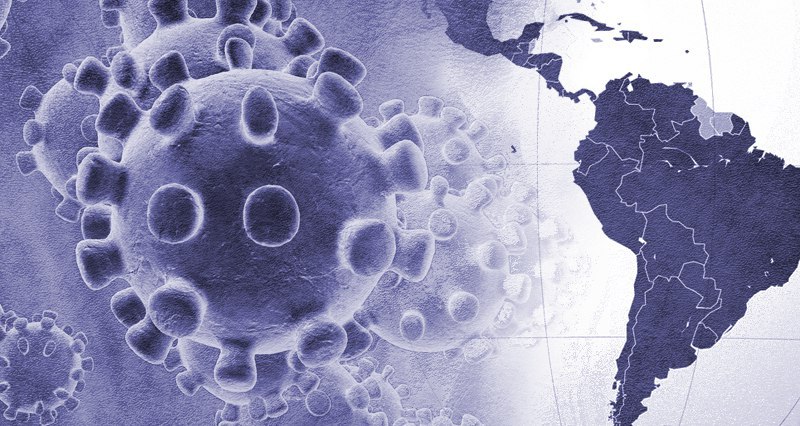





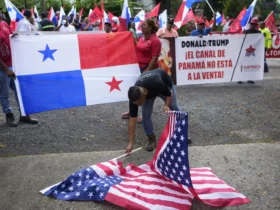
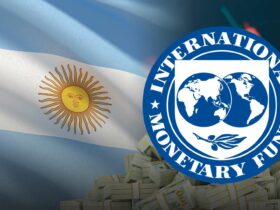
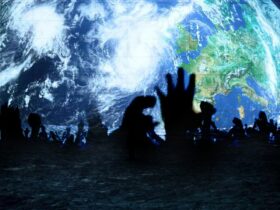

Leave a Reply